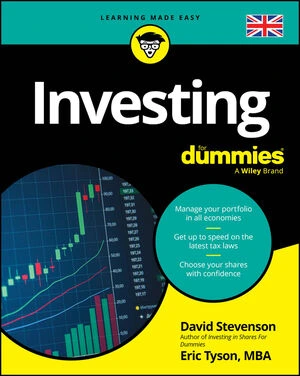Reading the financial news can help you decide where or where not to invest when you are looking at buying more stocks. Many newspapers, magazines, and websites offer great coverage of the financial world. Obviously, the more informed you are, the better, but you don’t have to read everything that’s written.
The information explosion in recent years has gone beyond overload, and you can easily spend so much time reading that you have little time left for investing.
Here are some resources to assist you:
The most obvious publications of interest to stock investors are The Wall Street Journal and Investor’s Business Daily. These excellent publications report the news and stock data as of the prior trading day.
Some of the more obvious websites are MarketWatch and Bloomberg. These websites can actually give you news and stock data within 15 to 20 minutes after an event occurs.
Don’t forget the exchanges’ websites such as New York Stock Exchange and Nasdaq.
What’s a company’s up to?
Before you invest, you need to know what’s going on with the company. When you read about the company, either from the firm’s literature (its annual report, for example) or from media sources, be sure to get answers to some pertinent questions:
Is the company making more net income than it did last year? You want to invest in a company that’s growing.
Are the company’s sales greater than they were the year before? Keep in mind that you won’t make money if the company isn’t making money.
Is the company issuing press releases on new products, services, inventions, or business deals? All these achievements indicate a strong, vital company.
Knowing how the company is doing, no matter what’s happening with the general economy, is obviously important.
What’s new with an industry
As you consider investing in a stock, make a point of knowing what’s going on in that company’s industry. If the industry is doing well, your stock is likely to do well, too. But then again, the reverse is also true.
Yes, investors have picked successful stocks in a failing industry, but those cases are exceptional. By and large, it’s easier to succeed with a stock when the entire industry is doing well. As you’re watching the news, reading the financial pages, or viewing financial websites, check out the industry to ensure that it’s strong and dynamic.
What’s happening with the economy
No matter how well or how poorly the overall economy is performing, you want to stay informed about its general progress. It’s easier for the value of stock to keep going up when the economy is stable or growing. The reverse is also true: If the economy is contracting or declining, the stock has a tougher time keeping its value. Some basic items to keep tabs on include the following:
Gross domestic product (GDP): The GDP is roughly the total value of output for a particular nation, measured in the dollar amount of goods and services. It’s reported quarterly, and a rising GDP bodes well for your stock.
When the GDP is rising 3 percent or more on an annual basis, that’s solid growth. If it rises but is less than 3 percent, that’s generally considered less than stellar (or mediocre). A GDP under zero (a negative number) means that the economy is shrinking (heading into recession).
The index of leading economic indicators (LEI): The LEI is a snapshot of a set of economic statistics covering activity that precedes what’s happening in the economy.
Each statistic helps you understand the economy in much the same way that barometers (and windows!) help you understand what’s happening with the weather. Economists don’t just look at an individual statistic; they look at a set of statistics to get a more complete picture of what’s happening with the economy.






